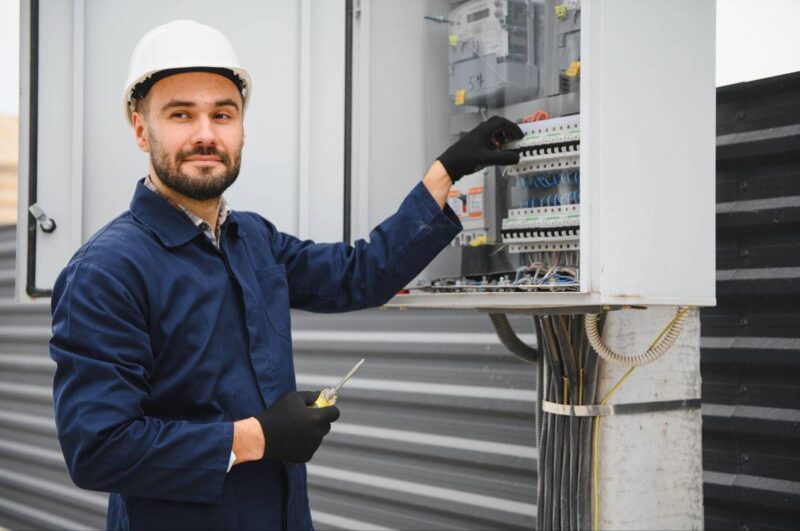When it comes to ensuring your home’s energy security, the decision to install a backup power system represents only the first step in the process. Equally important—and perhaps even more critical to your long-term satisfaction—is selecting the right professional to handle the installation. This choice can mean the difference between a seamless, worry-free system and one plagued by reliability issues, safety concerns, and unexpected costs.
The Critical Role of Professional Installation
Backup power systems involve complex electrical integration, fuel connections, and automated control systems that require specialized expertise. Unlike many home improvement projects, generator installation is not a suitable candidate for DIY approaches, regardless of a homeowner’s general handiness.
The stakes are particularly high because these systems:
- Connect to your home’s electrical panel and must integrate safely with utility power
- Involve fuel systems (natural gas, propane, or diesel) that require proper handling
- Include transfer switches that must operate flawlessly to prevent backfeeding to utility lines
- Require compliance with numerous building codes, electrical codes, and safety regulations
- Need proper sizing to match your specific power requirements
These complexities underscore why working with a home generator electrician in Montreal or your specific region who understands local requirements is essential for safety, compliance, and optimal performance.
Credentials and Licensing
The first and most fundamental criterion when selecting a generator installation professional is proper licensing. Electrical work, in particular, requires specific certifications that vary by province and municipality.
For a generator installation, you should look for:
- A licensed master electrician certification
- Specific training and certification from major generator manufacturers
- Proper business licensing and insurance coverage
- Membership in professional organizations like the Canadian Electrical Contractors Association
- Documentation of continuing education in modern power systems
These credentials not only ensure technical competence but also provide recourse through licensing boards if issues arise with the installation.
Experience Specifically with Generator Systems
Electrical expertise alone isn’t sufficient for quality generator installation. The specific experience with backup power systems matters significantly. A professional who has installed dozens or hundreds of generator systems will have encountered and resolved numerous challenges that arise during installations.
When evaluating experience, consider:
- How many years the company has been installing residential generators
- How many systems they install annually
- Experience with your specific property type (rural, suburban, urban)
- Familiarity with local permit requirements and utility interconnection policies
- Experience with the specific brand and model you’re considering
Professionals who focus primarily on generator installations typically deliver better results than general electricians who only occasionally work with these systems.
Comprehensive Service Capabilities
Generator systems require not just installation but ongoing maintenance and potential repair services. Selecting a professional who offers a complete service package provides several advantages:
- Familiarity with your specific installation when maintenance is needed
- Accountability for system performance over time
- Access to manufacturer parts and technical information
- Emergency service availability during power outages
- Scheduled maintenance to ensure reliability
Companies that offer installation but outsource service may create frustrating gaps in responsibility when issues arise. A single provider responsible for the system’s entire lifecycle typically delivers better outcomes.
Local Knowledge and Availability
Local professionals offer distinct advantages for generator installations:
- Understanding of region-specific challenges (weather patterns, soil conditions, local code requirements)
- Faster response times for service calls and emergencies
- Familiarity with local permitting processes and inspection requirements
- Established relationships with local utilities for coordination
- Knowledge of neighborhood noise ordinances and aesthetic requirements
While national chains may offer recognized names, local specialists often provide more personalized service and better understanding of regional needs.
Detailed Assessment and Quotation Process
The quality of a professional’s initial assessment often indicates the thoroughness of their overall approach. A proper evaluation should include:
- A detailed load calculation of your home’s specific power needs
- Physical inspection of your electrical panel and existing infrastructure
- Examination of potential installation locations
- Discussion of fuel options and availability
- Clear explanation of recommended system size and features
- Transparent pricing with itemized costs
- Timeline for permitting, installation, and commissioning
Beware of professionals who provide quotes without visiting your property or who seem to recommend the same system size for every home regardless of specific needs.
Warranty and Performance Guarantees
Quality professionals stand behind their work with robust warranties and guarantees:
- Installation workmanship warranty (typically 1-5 years)
- Clear explanation of manufacturer’s equipment warranty
- Documented startup testing and performance verification
- Written guarantees regarding system performance
- Transparent policies regarding service response times
These assurances reflect a company’s confidence in their installation quality and their commitment to customer satisfaction.
Customer References and Reviews
Perhaps the most revealing indicator of a professional’s quality is the experience of previous customers. Quality installation companies should provide:
- References from customers with similar installations
- Before and after photos of previous projects
- Access to online reviews and testimonials
- Evidence of repeat customers and referral business
- Examples of how they’ve resolved any customer concerns
Taking time to contact references directly can provide valuable insights into the complete customer experience beyond just the technical aspects of installation.
Communication Style and Educational Approach
The best professionals take time to educate homeowners about their systems rather than simply selling equipment. Look for professionals who:
- Explain options in clear, non-technical language
- Provide written materials about system operation
- Offer thorough training on system use after installation
- Remain accessible for questions after project completion
- Communicate proactively about maintenance needs
This educational approach helps ensure you’ll be comfortable with your system and able to maximize its benefits.
Conclusion
Selecting the right professional for your generator installation represents as significant an investment decision as choosing the equipment itself. The quality of installation directly impacts system reliability, safety, longevity, and your overall satisfaction.
By thoroughly evaluating credentials, experience, service capabilities, assessment process, warranties, customer feedback, and communication style, you can identify professionals who will deliver not just a power system, but the peace of mind that comes from knowing your home’s energy needs are secured by competent, caring hands.
Taking time to make this selection thoughtfully pays dividends through years of reliable operation and professional support for your home’s energy independence.









